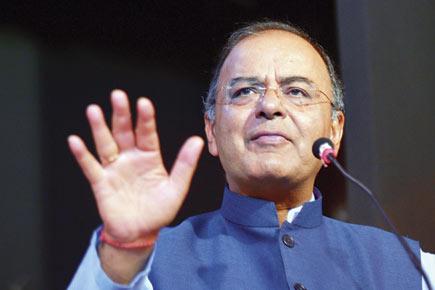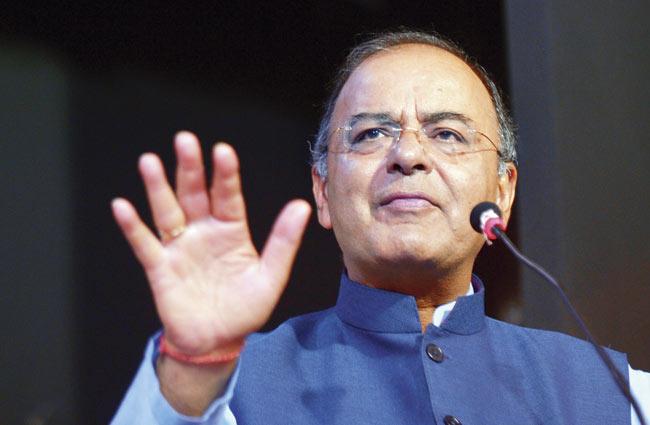The CBI, that crime and fraud busting agency whose director, it is now revealed, is believed to have met those accused of committing serious offences at his home on more than one occasion, has filed an FIR against former Disinvestment Secretary Pradeep Baijal

 The CBI, that crime and fraud busting agency whose director, it is now revealed, is believed to have met those accused of committing serious offences at his home on more than one occasion, has filed an FIR against former Disinvestment Secretary Pradeep Baijal. The FIR says Baijal bungled on the sale of ITDC’s Laxmi Vilas Hotel in Udaipur in 2002; that property, worth Rs 151 crore, was gifted away for a mere Rs 7.5 crore.
The CBI, that crime and fraud busting agency whose director, it is now revealed, is believed to have met those accused of committing serious offences at his home on more than one occasion, has filed an FIR against former Disinvestment Secretary Pradeep Baijal. The FIR says Baijal bungled on the sale of ITDC’s Laxmi Vilas Hotel in Udaipur in 2002; that property, worth Rs 151 crore, was gifted away for a mere Rs 7.5 crore.
ADVERTISEMENT

Finance Minister Arun Jaitley, who was Minister for Law in the Vajpayee government and a member of the committee, has defended Pradeep Baijal, while asserting that the sale of ITDC’s Laxmi Vilas Hotel in Udaipur in 2002 was legitimate. So has Arun Shourie. Sadly there aren’t more voices of protest. Pic/AFP
In brief, Baijal, who retired from service a decade ago, stands accused of corruption. He will now have to appear in court, possibly face arrest, spend his savings on lawyers’ fees, deal with endless harassment, be subjected to a demeaning media trial and suffer irreparable loss of reputation. His twilight years will become a living hell.
A caveat is called for. I happened to know Baijal when I was working for the Government of India. He had a formidable reputation for his honesty, and his integrity was as unimpeachable as that of his boss Arun Shourie, the Minister for Disinvestment in Atal Bihari Vajpayee’s government. He retired with an unblemished record, which few bureaucrats can boast of.
It is unthinkable that Baijal would have short-circuited the laid down procedures for disinvestment or hopped, skipped and jumped over the checks and balances that had been built into the system. It is equally unimaginable that the Cabinet Committee on Disinvestment, which approved every sale by the government, would have been less than thorough with its scrutiny.
Finance Minister Arun Jaitley, who was Minister for Law in the Vajpayee government and a member of the committee, has defended Baijal while asserting that the sale was perfectly legitimate. So has Shourie. Sadly, there aren’t more voices of protest.
Here are the basic facts. Laxmi Vilas Hotel, like all government-run hotels, was running at a huge loss. Its annual income was Rs 2 crore while expenses added up to Rs 3 crore. It was a rundown place which, by the time it was sold, was shunned by tourists. The decision to sell it was in keeping with the wise move to disengage the government from the business of running hotels.
Yet, 12 years later, the CBI has found it fit to question the deal and file an FIR whose basic premise is that the hotel has 29 acres of land that alone would be worth Rs 151 crore. The FIR follows an oral complaint lodged by an anonymous person. In other words, there is no complainant who can be cross-questioned and cross-examined if the case were to go to trial.
And here are some facts that have been wilfully overlooked by the CBI. First, the land at best has notional value, because nothing can be built on it as it is adjacent to a lake and designated Coastal Regulation Zone. Second, a similar case contesting the sale on this very ground was thrown out by the Rajasthan High Court. But the CBI persists.
As with its cockamamie charges against another honest bureaucrat, P C Parakh, which it had to shamefacedly drop, the CBI will have to eat crow in this instance, too. The charges against Baijal will not muster legal scrutiny unless there is wholesale perversion of the law. Our courts are yet to get there.
That, however, offers minor comfort. This uncalled for harassment of innocent people must stop. The time has come to make the CBI, and every police organisation, accountable at the institutional and individual level for bogus charges and malicious prosecution. Here are three immediate steps Narendra Modi’s government can, and indeed must, take.
First, the CBI should be forced to disclose who is the anonymous complainant. That would tell its own story. Also, the agency must be barred from filing FIRs on the basis of anonymous oral complaints.
Second, investigating and prosecuting agencies, including state police forces, must be made liable for damages if charges do not stick or are dropped. The penalty should be stiff and made payable by individuals from their personal funds or by liquidating their assets.
Third, the Delhi Special Police Establishment Act of 1946 must be abrogated as soon as possible. Now that we have the NIA, we do not need the CBI. This agency is both redundant and undesirable.
Reforms, Narendra Modi cannot afford to ignore, are not about the economy alone. They are also about our institutions and how we are governed. Here’s an opportunity to launch the much-delayed police reforms.
The writer is a senior journalist based in the National Capital Region. His Twitter handle is @KanchanGupta
 Subscribe today by clicking the link and stay updated with the latest news!" Click here!
Subscribe today by clicking the link and stay updated with the latest news!" Click here!






